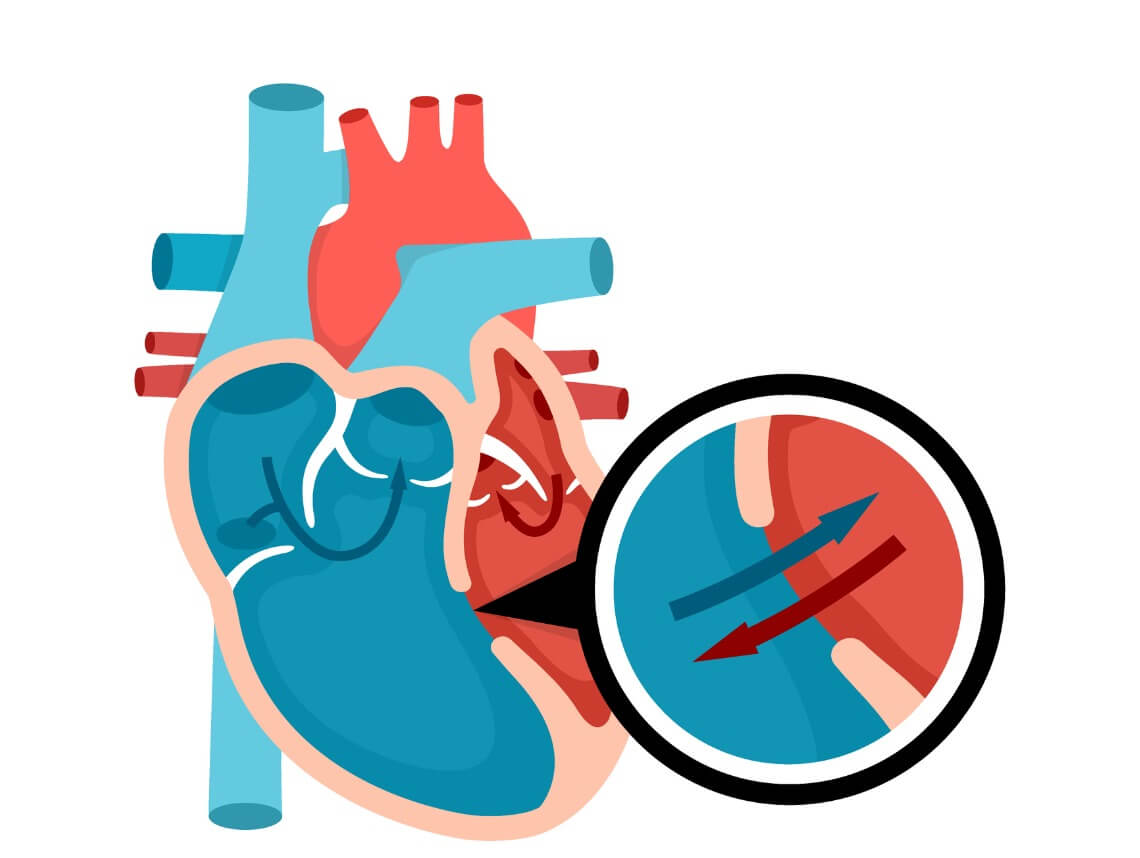Ventricular septal defect (VSD) is a heart defect characterized by a hole in the wall that separates the heart’s two lower chambers. This blog aims to shed light on VSD, explaining its nature, symptoms, diagnosis, available treatments, and the caring support essential for children with this condition.
What is ventricular septal defect (VSD)?
Ventricular septal defect, commonly referred to as VSD, is a congenital heart defect where there is an opening between the heart’s two ventricles — the lower chambers. This hole disrupts the normal blood flow within the heart, leading to a mixture of oxygenated and deoxygenated blood. VSD can vary in size and location, influencing a child’s heart function.
Symptoms of Ventricular Septal Defect
The symptoms of VSD can range from mild to severe and may include:
- Difficulty in Feeding: Infants with VSD may become tired quickly while feeding due to the increased workload on the heart.
- Rapid Breathing and Shortness of Breath: Children may experience labored breathing, especially during physical activities.
- Poor Growth: Insufficiently oxygenated blood reaching the body’s tissues can lead to slower growth and development.
- Frequent Respiratory Infections: Children with VSD are more prone to respiratory infections due to the increased strain on their hearts.
- Heart Murmur: A distinctive sound produced by blood flowing through the hole, which a healthcare provider can detect during a physical examination.
Diagnosis of Ventricular Septal Defect
Diagnosing VSD involves a combination of medical history, physical examination, and diagnostic tests. Common diagnostic steps include:
- Physical Examination: A healthcare provider listens to the child’s heart using a stethoscope to detect abnormal heart sounds, like heart murmurs.
- Echocardiogram: This imaging test uses sound waves to create pictures of the heart’s structure and blood flow, helping to pinpoint the location and size of the defect.
- Electrocardiogram (ECG or EKG): This test records the heart’s electrical activity, helping identify any abnormal rhythms or signs of strain.
Treatment Options for Ventricular Septal Defect
The approach to treating VSD depends on factors such as the size of the defect, its location, and the child’s overall health. Treatment options may include:
- Observation: Small VSDs that are not causing significant symptoms may be monitored regularly to ensure they do not worsen.
- Medications: Medications may be prescribed to manage symptoms such as congestive heart failure or respiratory infections.
- Surgical Repair: If the VSD is large or causes severe symptoms, surgical intervention might be required to close the hole using a patch or sutures.
Caring for a Child with Ventricular Septal Defect
Caring for a child with VSD requires a comprehensive and nurturing approach. Here are key aspects to consider:
- Regular Follow-ups: Regular check-ups with a pediatric cardiologist are essential to monitor the child’s heart function and overall health.
- Medication Adherence: If medications are prescribed, ensure the child takes them as directed by the healthcare provider.
- Healthy Lifestyle: Encourage a balanced diet, regular exercise (as advised by the healthcare team) and maintaining a healthy weight.
- Emotional Support: A child with VSD may experience emotional challenges. Offer a supportive environment to help them cope with any anxiety or stress.
- Educate Yourself: Learn about VSD, its management, and potential complications to make informed decisions and advocate effectively for your child’s care.
Ventricular septal defect may present challenges, but with timely diagnosis, appropriate medical care, and a loving support system, children affected by this condition can lead fulfilling lives. Parents and caregivers can help ensure children with VSD have a happy and bright future by partnering with healthcare professionals, staying vigilant, and providing unwavering care.
Contact Care Options for Kids for Pediatric Home Health Care in Florida
It can be hard to balance your time between work, home, and caring for a child. That’s why our team of skilled professionals at Care Options for Kids is here to help.
Our home health care services offer one-on-one care in the comfort of your home. We refer loving and competent nurses to provide customized care for families — from a few hours a day to around-the-clock supervision. Contact us directly to speak with a home health care professional. Together we can determine the best plan of action to keep your loved ones happy and healthy.
If you or a loved one are considering Pediatric Home Health Care Services in Florida, contact the caring staff at Care Options for Kids or request a free pediatric consultation. Call today at (888) 592-5855.






